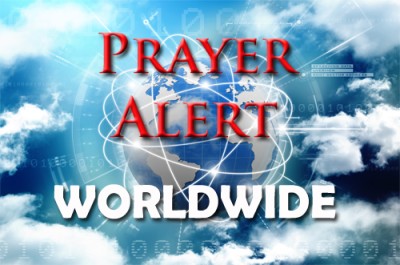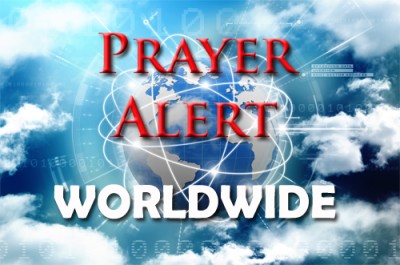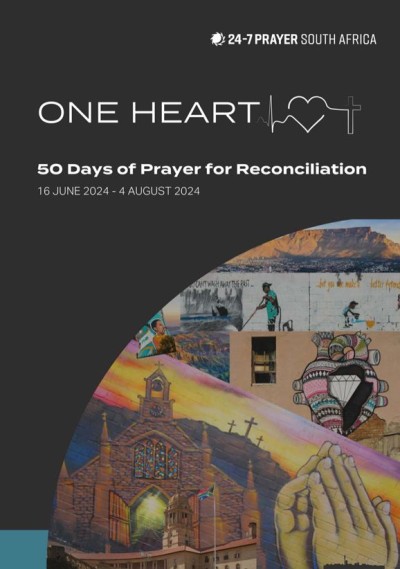Human-elephant conflict in Malaysia has resulted in nearly five thousand complaints and RM40 million (£7 million) in losses over the past four years, prompting conservationists to call for a deeper, more strategic approach than the long-standing practice of elephant translocation. Prof Dr Ahmad Ismail of the Malaysian Ecological Association stressed the need for a comprehensive understanding of elephant biology, behaviour, and ecology to manage habitats effectively. He also called for strengthening ecological corridors and fostering cooperation with state governments. Meanwhile, the government wildlife department has initiated a year-long translocation operation involving 25 elephants, beginning in Johor and expanding to other conflict-prone states. A commentator, noting that limited natural landscapes leave elephants with nowhere to roam, says, ‘The elephants and all other forms of wildlife were here first’. This discussion underscores the need for proper funding and stronger commitment to preserving Malaysia’s remaining forests and natural resources.
A political storm is brewing in Washington as divisions deepen over the Trump administration's refusal to release files related to deceased sex offender Jeffrey Epstein. House speaker Mike Johnson, a close Trump ally, broke ranks by expressing public support for the files' release, citing the need for transparency. However, he later voted to block a Democrat-led resolution calling for that very action. The justice department, led by attorney general Pam Bondi, denies the existence of a client list in the files, and maintains the matter is closed - sparking outrage among both Democrats and Trump’s MAGA supporters, who had been promised accountability. While bipartisan lawmakers are pressing for a House vote, Democrats in Congress and the Senate are pushing legislation to preserve and disclose all Epstein-related documents. The issue has become a flashpoint for demands for transparency and oversight, exposing cracks within the GOP and giving Democrats an opportunity to frame themselves as champions of accountability and reform.
One Heart - Reconciliation Prayer Guide
15 Jul 202550 Days of Prayer for Oneness and Reconciliation
“FATHER, MAKE THEM ONE” – John 17
The time is right for the Church to take the lead and assist our countries to heal. As Christians we owe the world a testimony. Let us move from fear, hatred and distrust to rebuilding the ruined walls, as in Nehemiah’s time, helping each other to overcome the past and walking in faith, believing that the King of Kings is still empowering us. Let us celebrate our shared identity in Christ.
We cannot change, transform or heal ourselves. Only the Triune God can do that. But then we need to spend time with Him and allow Him to speak to us.
In light of the need for healing and reconciliation and for our hearts to be prepared, this 50 Days of Prayer was initiated.
The 50 Days will start on 16 June and end on 4 August 2024.
Please join in this process of humbling ourselves before God so that God Himself can heal and reconcile us with Him and with one another.
More info / Download: https://jwipn.com/one-heart-prayer-for-reconciliation-16-jun-4-aug/
App: Interseed Online House of Prayer
15 Jul 2025Join the Online Global Prayer Movement with the Interseed App!
Imagine thousands of believers from every nation, tribe, and tongue united in prayer—lifting their voices day and night before the throne of God. With the Interseed Online House of Prayer app, this vision is becoming a reality.
Developed to mobilise united, Scripture-led prayer for the nations, Interseed is more than just an app—it’s a growing global prayer family.
Whether you're on a lunch break, commuting, or awake in the night, you can log in and instantly join with other followers of Jesus to intercede for cities, nations, unreached people groups, and urgent needs.
At the heart of the app is the Prayer Wall—a live feed where believers post real-time prayer requests and praise reports. You can respond with a tap, adding your voice to prayers already rising like incense before the Lord (Revelation 5:8). Every “amen” is a vote of faith in the power of God to move!
You’ll also find daily prayer points, themed prayer rooms, and video devotionals from prayer leaders around the world. Whether you're passionate about revival, mission, justice, healing, or the next generation, there’s a space for you to engage and grow in your calling as an intercessor.
Dr. Jason Hubbard, Director of International Prayer Connect, says:
"We’re witnessing a new era of global, united prayer—Interseed is helping us connect and pray as one Body across time zones and cultures."
We invite you to download the app, create a free account, and take your place in this extraordinary, end-time movement of prayer.
- Post your own prayer requests
Pray for others and mark them as prayed for
Join virtual prayer rooms focused on strategic regions
Receive real-time notifications for urgent global needs
Be strengthened and encouraged through community prayer
Let’s fill the airwaves with prayer.
Let’s believe for awakening, revival, and the fulfilment of the Great Commission in our day.
Download the Interseed app today on iOS or Android
Visit https://interseed.io to learn more
Together, let’s build a canopy of prayer across the nations - until the earth is filled with the knowledge of the glory of the Lord!
Join the 24-7 Prayer for Revival – Raising a Godly Generation!
Jericho Walls International Prayer Network invites believers worldwide to unite in an extraordinary week of 24-7 prayer from 14th to 20th July 2025. Under the stirring theme “Shooting Arrows” (Psalm 127:4), this year’s focus is on raising a godly generation of young people aged 10 to 21. In a world where moral relativism clouds truth and biblical values are increasingly dismissed as optional, we as the Body of Christ are called to stand in the gap for the next generation.
This beautifully crafted prayer guide offers daily prayer themes—from resisting moral compromise, to embracing God’s absolute truth, to discovering personal purpose and calling. It draws powerful lessons from biblical heroes like Daniel, Timothy, Joseph, and ultimately Jesus Himself. Each day provides Scripture-based prayers both for and with young people, making this a perfect tool for families, churches, youth groups, and intercessors.
Our youth face countless pressures and confusing messages. Yet God’s Word promises that when we pray, He hears and answers. Imagine the impact of believers all around the world lifting up this generation in united, ceaseless prayer!
Don’t miss the chance to be part of this Kingdom effort. Download the guide, gather your family, your church, or your prayer group, and take time each day to pray over the highlighted themes. Let’s believe God for a revival that will shape young hearts to walk worthy of the Lord, be fruitful in every good work, and increase in the knowledge of God (Colossians 1:10).
Join us as watchmen on the walls. Let’s shoot arrows of faith, truth, and intercession into the heart of the next generation—for God’s glory and the fulfilment of His purposes on the earth!
Book: Fire on the Family Altar – Cheryl Sacks
15 Jul 2025Fire on the Family Altar: Experience the Holy Spirit's Power in Your Home
“As the family goes, so goes the nation.”
Nations are in turmoil because of satan’s attack on the family. As countless households have surrendered to the slumbering spell of the spirit of this age, the world has increasingly fallen into decay. But there is hope! Destruction of this demonic agenda is possible, and it begins at home!
“Revival will come to a nation when the family altar is restored.” Cheryl Sacks, a dynamic Kingdom leader and prophetic intercessor, heard these words from the Lord. Today, she is wholeheartedly working to turn the tide by filling households across the nation with Holy Spirit power!
In Fire on the Family Altar, Cheryl offers prophetic decrees from scripture and practical instructions for restoring the family altar in your home, so you can operate in the strength that God created families to maintain within culture.
In this bold book, you will discover how to:
Pray supernatural prayers that catapult children into divine destiny.
Bring your household into encounters with the Holy Spirit.
Safeguard your family from the powers of darkness.
Raise up Kingdom reformers who will shape and impact every sphere of culture.
Don’t allow the spirit of this age to hold families captive any longer. One righteous family can make a difference! Restore the family altar in your home, and spark the flames of revival!
Available on Amazon
More info
Candace Cameron Bure has opened up about a deeply challenging season in her marriage to husband Valeri during 2020, revealing that they were close to separation. The turning point came unexpectedly through their eldest son, Lev. Although unmarried at the time, Lev confronted his parents with a heartfelt, Bible-based exhortation about marriage. In a recent podcast, Candace recalled Lev speaking for 45 minutes, Bible open, urging his parents to consider whether they had done everything possible to reconcile, and to offer further grace and kindness to each other. His gentle firmness and spiritual insight deeply moved his parents, prompting them to reflect and recommit to working through their difficulties. Candace described the conversation as a 'pivotal moment' which transformed the couple’s relationship. She expressed profound gratitude for her children’s courage and spiritual maturity, crediting their family’s legacy of Christ-centred marriages as a sustaining influence. Lev has since married Elliot Dunham, continuing the family’s legacy. Candace celebrated the wedding as a Spirit-filled, Gospel-focused occasion, underscoring their generational faith.
Hope for Christians In a hugely dangerous place
10 Jul 2025In Iran, one of the world’s most dangerous places to be a Christian, the underground church is growing remarkably. Amid an oppressive regime enforcing Twelver Ja’afari Shia Islam, over one million believers now worship in secret, making Iran home to the fastest-growing Christian population globally. These followers meet discreetly in house churches of no more than fifteen people, risking arrest, loss of livelihood, and severe punishment. Stories like Azam’s highlight this courage: shunned for pregnancy outside marriage, she found hope in Christ through a Christian woman’s witness, discovering the One who bears shame and offers new life. Despite surveillance, threats, and societal rejection, Iranian Christians embody a faith purified through suffering, reminding believers worldwide that Christianity is not defined by comfort or buildings but by a willingness to risk all for Jesus. Their example challenges Western believers to strip away distractions and embrace genuine, sacrificial faith. Ministries like ICM partner with the underground church, discreetly distributing Scripture via micro SD cards, ensuring the Gospel continues to spread even in the darkest circumstances.







